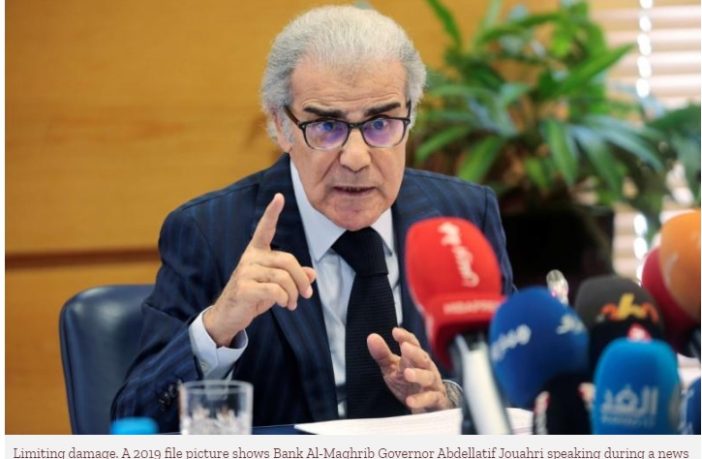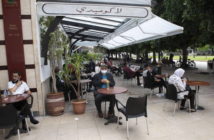The Arab Weekly
Moroccan Prime Minister Saad Eddine El Othmani said the country had taken unprecedented and forward-looking steps.
Bank Al-Maghrib Governor Abdellatif Jouahri announced new measures that allow Morocco’s central bank to triple resupply of funds to local banks to counter the effects of the COVID-19 outbreak.
He said the measures would allow banks to use all refinancing methods in local and foreign currencies and for the central bank to expand the range of bonds and securities it would accept in exchange for refinancing and extend deadlines on refinancing.
Bank Al-Maghrib said the steps include strengthening its programme for refinancing micro, small and medium-sized projects by merging operational loans and investment loans and increasing the pace of refinancing.
The Moroccan Ministry of Industry, Trade and Green and Digital Economy introduced a programme to support investments in manufacturing products and equipment destined for fighting the coronavirus pandemic.
This programme would help revive these companies with about 30% of the total investment package needed.
The targeted projects include companies manufacturing sterilising liquids, face masks and medical vests, aseptic suits, surface cleaning solutions, medical sterilisation equipment and first aid items.
Jouahri said the central bank had instituted procedures to support credit institutions, including requirements for liquidity, self-financing and debt allocations to help companies support families and enterprises during the crisis.
He acknowledged the pandemic would have major repercussions on the global economy, including in Morocco, and stressed the government’s commitment to track the effects on the economy and financial system and taking the necessary initiatives to address them.
Moroccan Prime Minister Saad Eddine El Othmani said the country had taken unprecedented and forward-looking steps since the beginning of the pandemic.
The government offered financial support for families working in the informal sector. The Economic Vigilance Committee started by focusing on measures to support the informal sector affected by generalised quarantine.
The Ministry of Economy said families consisting of two individuals or less would receive about $80 a month, those with three or four individuals $100 and families with more than four members would receive $120.
The government, the Social Security Fund and the General Union of Moroccan Contractors (the representative of the private sector) signed an agreement detailing support measures to sectors affected by the coronavirus pandemic.
All employees registered with the Social Security Fund, including people from the fishing sector and those suspended from work because of the pandemic, would receive $200 a month each in addition to reimbursement for medical expenses for those in the compulsory health insurance system.
The agreement states that compulsory contributions to the Social Security Fund would be suspended until June 30. The agreement could be extended, depending on the coronavirus-related situation in the country.
The Moroccan Centre for Economic Conditions said the measures announced by the government were appropriate for preventing many companies from going bankrupt and for preserving jobs. The centre pointed out that the real estate and food industries were among sectors hit the hardest by the pandemic.
The Economic Vigilance Committee established measures to aid medium and small companies from economic crises and prevent the collapse of banking transactions to maintain confidence in the economy.
The committee suspended the March 31 tax deadline and ordered banks to stop automatic deductions of loan payments for businesses and individuals affected by the crisis. Tax auditing and reviews were suspended and there were moves towards establishing a fund to support affected sectors.
The Professional Group of Moroccan Banks is allowing individuals and businesses to postpone payment of loan instalments for three months upon written request with the possibility of the grace period being extended for three additional months.

Written ByMohamed al-Alawi







